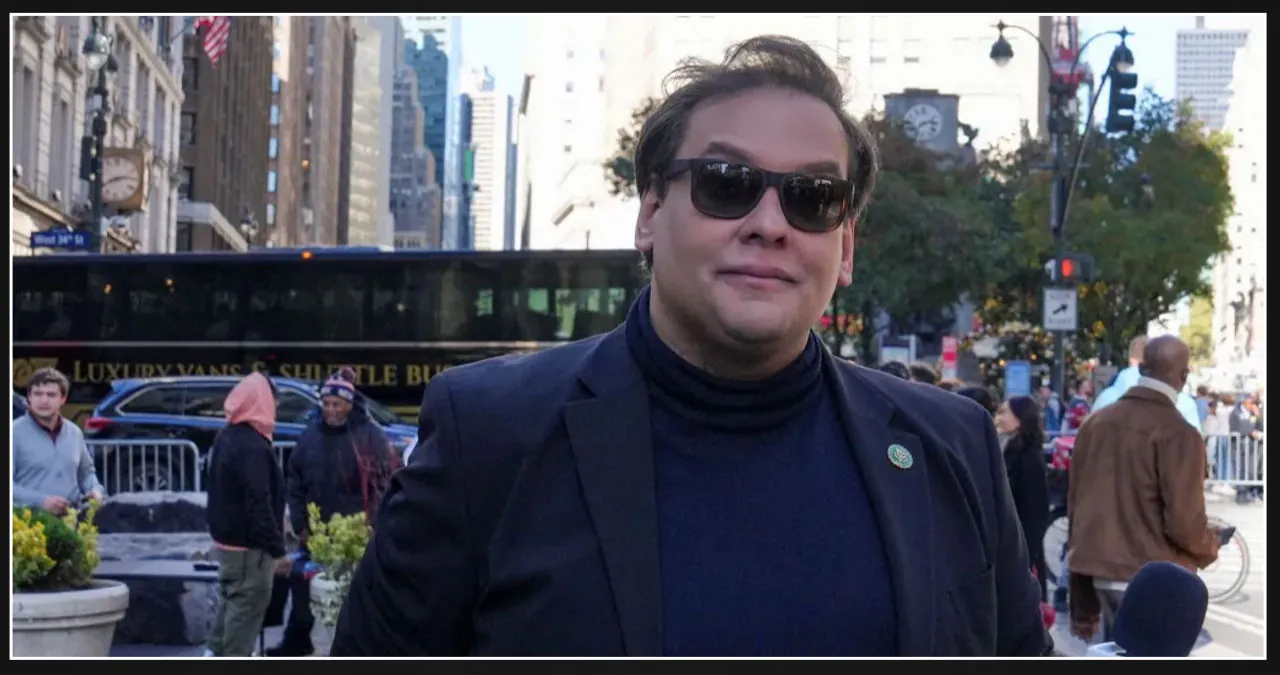Former Long Island Rep. George Santos’ legal team is requesting a delay in his sentencing for his fraud case, claiming that he requires additional time to release episodes of his podcast “Pants on Fire.”
Santos’ attorneys argue that the podcast revenue will assist him in settling the fines totaling over half a million dollars. These fines are a result of various charges, including stealing campaign donor identities, embezzlement, and unauthorized use of supporter credit cards.
However, the prosecutors from the Eastern District of New York strongly disputed this claim in a court filing on Tuesday. They expressed skepticism regarding Santos’ assertion that he only has a little over $1,000 in cash available. The prosecutors pointed out that despite earning over $800,000, and previously receiving a publicly-funded salary of $174,000 as a Congressman, Santos has reported to the Probation Department that he possesses only a small amount of liquid assets.
Santos’s letter fails to provide any explanation regarding the utilization of the funds. The Court should have reservations about delaying Santos’s sentencing based on his alleged inability to save $578,752.94, especially considering his previous public statement claiming to earn $80,000 per day from his fame.
According to Santos’ lawyers, the former Republican lawmaker, who had been discredited, managed to secure a “promising revenue stream” for his podcast in August. However, the show was only launched in the middle of last month due to various technical and logistical challenges.
While Santos is trying to postpone his sentencing until August instead of the original date of February 7, he has publicly denied seeking a pardon from President-elect Donald Trump. Last year in August, Santos pleaded guilty to charges of identity theft and wire fraud and was fined almost $580,000.
If Santos fails to pay the required amount, he could face a prison sentence ranging from a minimum of two years to a maximum of 22 years. Additionally, the federal authorities have the power to seize some of his property.
According to Santos’ attorney, there is now a viable opportunity for Mr. Santos to make significant headway in fulfilling his obligations. The only requirement is that more time is needed for the quarterly compensation structure to generate enough funds. However, prosecutors argue that Santos’ inability to meet his forfeiture and restitution obligations before sentencing does not justify a delay in the sentencing process.
Prosecutors argue that the government can continue to pursue Santos’s forfeiture obligations even after sentencing is completed. They assert that any claims of financial inability to pay the full amount should not be a reason to delay the sentencing process.
Furthermore, the government has expressed doubts about the effectiveness of the podcast in assisting Santos in resolving his financial obligations.
Prosecutors argued that Santos’ assertion that his financial situation will have significantly improved in the next six months to meet his forfeiture and restitution responsibilities is highly speculative. They pointed out that his letter lacks any documentation of his current financial status and fails to provide an explanation for his spending and dissipation of assets since his guilty plea.







Leave a Reply